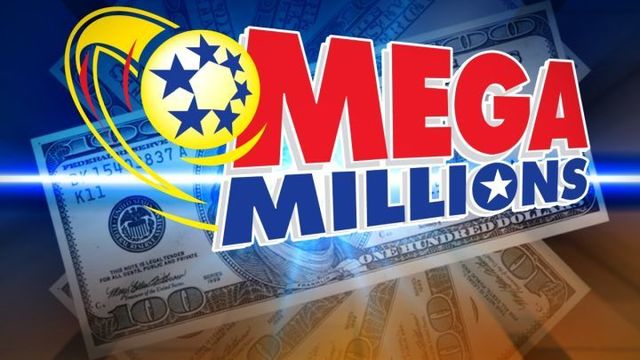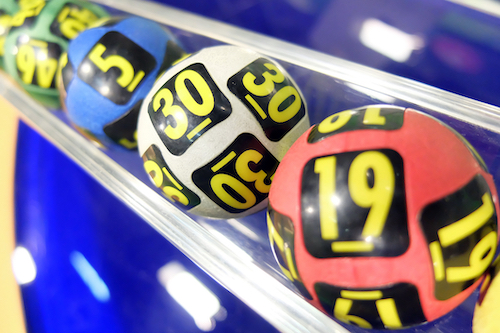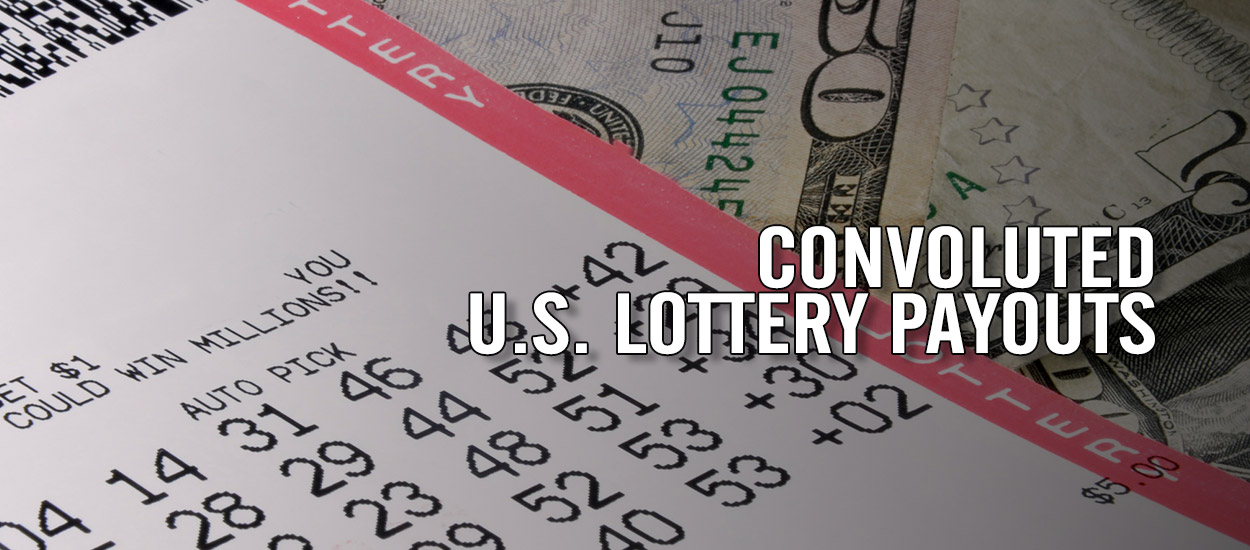It's nearly immpssible to collect a billion playing the lottery
When the Mega Millions jackpot reached 1.13 billion dollars, the question on most U.S. broadcasts was "what would you do if you won a billion dollars?" The question was even posed on many Canadian broadcasts and likely the rest of the world, since U.S. newscasts are shown in Canada and often Canadians will travel to a neighboring U.S. state to purchase some tickets.  The question of what to do with a billion dollars, however, was moot.
The question of what to do with a billion dollars, however, was moot.
Pay me now or pay me later
The advertised amount of the winnings on any lottery like Mega Millions or Powerball is based on a 30-year annuity. The lump sum payment is often just half that depending on the interest rate used, and even taking out over 30 years, the true amount won based on the present value of the annuity is far less. Nevertheless, more than 95% of people take the lump sum on these mega jackpots, which reduces the advertised payout to almost half.
Taxes
The U.S. Federal government then takes 24% of that amount up front and state governments take a percentage as well, depending on the state. Taxes range from 2.9% in North Dakota to 8.82% in New York. Oregon, Maryland and New Jersey also charge at least 8%. Six states including California do not tax lottery winnings while five states, Alabama, Nevada, Alaska, Hawaii and Utah don’t offer lotteries.  Utah and Hawaii do not offer any form of gambling and likely never will and Alaska is an anomaly. On top of that, gambling winnings are taxed on yearly income tax forms meaning the overall tax bill could be over 40%.
Utah and Hawaii do not offer any form of gambling and likely never will and Alaska is an anomaly. On top of that, gambling winnings are taxed on yearly income tax forms meaning the overall tax bill could be over 40%.
So, when the Mega Millions winner from New Jersey comes forward to claim their prize assuming they take the lump sum, instead of getting $1.13 billion, they will get around $295 million, which consists of the lump sum amount of $537.5 million, less 37% for federal taxes for being at the top income bracket, which reduces it to about $338 million. And then New Jersey takes another 8% of the $537.5 million, which reduces it further to $295 million. And when taxes on all the interest earned are taken out it will be about $280 million assuming the money is put into some sort of interest earning account for 9 months if they come forward in April. $280 million is nothing to sneeze at, but it’s hardly $1.13 billion.
Payouts around the world
This system of annuities and taxation leaves many people in other countries scratching their heads. In Canada, there is no tax on windfalls, which means any money won on the lottery, at a casino, in a contest or even on a game show is tax free. The same is true in the UK and Ireland, Australia, New Zealand, Japan, Singapore and other parts of Asia where gambling is legal, and even in Mexico. The governments in those countries only get taxes on interest earned if the money is put in a savings account or invested in something that gives out dividends. And in no other country including Italy, Poland, the Netherlands and a few others that do tax lotteries, is the amount paid out as an annuity. Taxes are taken at the national level only and the final amount that is being paid out after taxes is announced as part of the advertising. So, for example, if the prize for the Eurojackpot lottery is 100 million euros, and the prize is won in Poland that has a 10% tax on winnings, then Poland will advertise that the prize for the Eurojackpot is 90 million euros which is the amount the person gets after taxes which is far easier to understand and fair.
Double taxation?
I spoke to tax lawyers I know in both Toronto and Florida and asked them about their opinions on charging taxes on gambling winnings and/or the lottery. Jack, an accountant who works for a large multinational law firm in Toronto said that he finds the concept of taxing lotteries and casinos unconscionable since it effectively amounts to double taxation.
"The lotteries have a built-in tax already," Jack said. "For Lotto Max or Lotto 6-49, for example, the payback to the players is only about 65%. So, for every million dollars in tickets sold, the governments are already taking $350 thousand dollars as a type of tax. Obviously, they pay expenses out of this, but the amount governments make already is astronomical. To tax them again on those winnings like they do in the U.S. is truly double taxation. There has been some discussion in provincial parliaments of taxing windfalls or at least lottery winnings, but whenever it is brought up, there is so much pushback by voters that politicians drop it and look elsewhere for revenue sources. Even discussions of taxing lotteries or casino winnings is met with derision.
 I can appreciate the idea of taxing casino winnings more than lotteries, but online operators pay a 20% tax on revenue to the provincial government, plus a yearly licensing fee and physical casinos pay even higher taxes to both the government if they are privately run. And for casinos that are government run, which is the case in most of Canada, all the profits go to the government. Your readers should understand that until the early 1970s the only form of legal gambling in Canada was horse racing and at least 20% of every bet goes to the track for upkeep and purses and the remainder goes to the government in taxes. There was never a discussion of asking horse bettors to pay taxes on their winnings, so why should it be different for lotteries or casinos?
I can appreciate the idea of taxing casino winnings more than lotteries, but online operators pay a 20% tax on revenue to the provincial government, plus a yearly licensing fee and physical casinos pay even higher taxes to both the government if they are privately run. And for casinos that are government run, which is the case in most of Canada, all the profits go to the government. Your readers should understand that until the early 1970s the only form of legal gambling in Canada was horse racing and at least 20% of every bet goes to the track for upkeep and purses and the remainder goes to the government in taxes. There was never a discussion of asking horse bettors to pay taxes on their winnings, so why should it be different for lotteries or casinos?
You asked me why I think Americans don’t push back on having to pay taxes on gambling winnings? It’s just built into their psyche. From the time the U.S. introduced income taxes, the government there said that any money that is earned is taxable and since legal gambling was only available at parimutuel horse and dog tracks, in Nevada and Atlantic City, there was little pushback. And when the lottery came about it was just added as another form of gambling. An American lawyer can probably explain a bit better, but the bottom line is that it is unlikely gambling winnings will ever be taxed in Canada since even the suggestion is a guaranteed election loser. Professional gamblers are still required to report gambling earnings and are taxed on net winnings or get refunds against prior winnings should they lose, but the burden of proof to show one is a professional gambler is so arduous that most professionals don’t bother. There is a famous case from about 20 years ago where a gambler declared all his gambling winnings on his income tax return but was denied by Revenue Canada from deducting gambling losses against the amount won. Revenue Canada said that he had no proven system and therefore was not a professional gambler and it was his fault for claiming the gambling wins as income. Needless to say, after that he stopped claiming gambling winnings."
I also talked with Fred, a retired lawyer from Jacksonville, Florida who I met one time at a gambling conference in Montreal and who I stayed friends with over the years about the topic, and he surprisingly had a similar reaction that Jack did.
“The IRS has declared that gambling winnings are taxable because they were derived from an investment. It is the stupidest thing you’ll ever hear and I argued several times that it is an unfair tax but no one in government wanted to hear it. You have a 1 in 292 million chance of winning the Powerball jackpot, but buying tickets for that is an investment? You have a better chance to be hit by lightning twice in a week than winning the Powerball. It’s a sucker’s bet and a tax on the mathematically challenged. The same holds true for slot machines or most table games at casinos where it’s all luck and has a preset payback to the player of about 88%-95%. How can that be an investment? I can understand taxing poker, sports betting or even racetrack betting where there are professional gamblers who win all the time, but for the shmoes like me, who lose a lot more than they win, it’s not a profession. Nowadays it’s not as big a deal to keep track of winnings and losses since player cards keep track of everything and you get a W2-G form in the mail showing your net wins, but in the old days where you had to save betting slips and keep a journal of your losses, notarized by someone else to prove that you didn’t really win money, it was a real pain in the ass.
Nevertheless, we’re really talking more about the lottery and I think the main reason the IRS taxes it is that they want to tax casino betting and would be called out if they said one form of betting was taxable while another wasn’t. So, it’s just easier to say that betting on a horse race, a slot machine or the lottery is all in the same and is subject to the same tax rules. And let’s face it, no one feels sorry for the money someone has to pay the government for a big win, including the winner himself. Most lottery wins are 20 bucks or possibly a few hundred bucks which is lower than the tax threshold, but no one is feeling bad for the fact that a billion-dollar lottery winner is going to have to survive on 300 million or so.
My biggest issue is that it’s double taxation. The lottery, slot machine, blackjack table, poker bets, etc., all have a tax included with every turn played, and we are a nation that apparently hates the idea of double taxation, even though it occurs all the time. Presidents even won elections running on the idea of ending double taxation for corporations, although they never went through with the promise. So, if we truly don’t like something, then let’s end it and this is an easy place to start. If you think about it, America was founded because the people were tired of paying taxes and getting nothing for it. The whole tax system and rules has to be reviewed, but I doubt that will happen in my lifetime.”
So, while a billion-dollar lottery win sounds enticing, it’s important to realize that what you will bring home is only a fraction of that amount after taxes and if it’s taken in a lump sum. It’s not false advertising per se, but to the rest of the world that doesn’t tax lottery or gambling winnings, it does seem disingenuous and also appears to be double taxation. Gamblers can deduct gambling losses to offset wins and in Canada, and I assume in most other countries, there are companies that claim they will help foreign residents recover some of the 30% tax that is withheld for big wins at U.S. casinos. But when I have spoken to those places in the past, they admit they only help bettors who are willing to file a U.S. tax return identify all of their other gambling losses in a year, which they can apply it against those winnings, and get some of the 30% returned. Most times, the hassle of filling out the U.S. return isn’t worth it or the amount that can be recovered is less than what it would cost for the service. But it does seem clear that the U.S. tax system is controversial in this regard and as Fred said, there will come a time when the U.S. tax system is reviewed and no doubt the tax on gambling winnings will be brought up by attorneys, accountants and gambling analysts who claim it is unfair double taxation. Until that time, the New Jersey lottery winner and others like him/her will have to learn to live on only a few hundred million dollars.
Oh well, sometimes life is hard.
Read insights from Hartley Henderson every week here at OSGA and check out Hartley's RUMOR MILL!







































